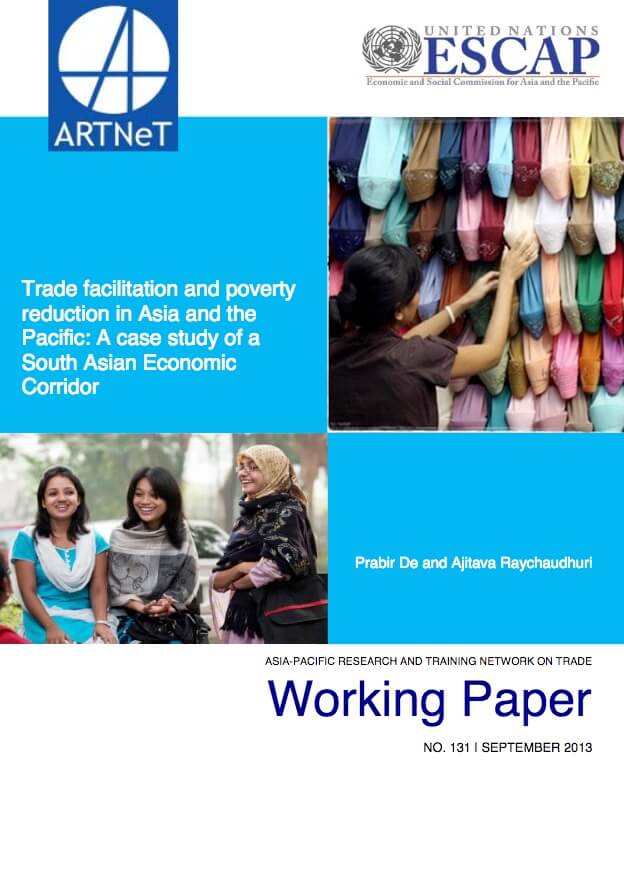Trade facilitation and poverty reduction in Asia and the Pacific: A case study of a South Asian Economic Corridor

Relation between trade, inequality and poverty within countries is not beyond controversy. Under free trade and competitive conditions, trade promotes growth, and growth reduces poverty. In general, trade liberalisation has long been seen as an important element of an effective and sound economic policy and trade facilitation is a necessary step for achieving it. Trade facilitation is aimed at ensuring the movement and clearance of goods across borders within the shortest time at the minimum cost. Reducing trade costs can have a profound impact on trade and therefore on poverty. Based on primary survey data, this study assesses the potential impact of trade facilitation on poverty reduction in the region falling under SAARC Corridor 1, which is one of the leading corridors in South Asia that handles considerably good amount of overland trade between three major South Asian countries, namely, Bangladesh, India and Pakistan and also their global trade. One of the conclusions of this study is that poverty reduction, in the perception of the individuals connected with trade, depends on reduction in trade barriers through better trade facilitation. However, in the perception of the trading firms, better infrastructure which facilitates more trade is tagged with a positive response about decline of poverty.
